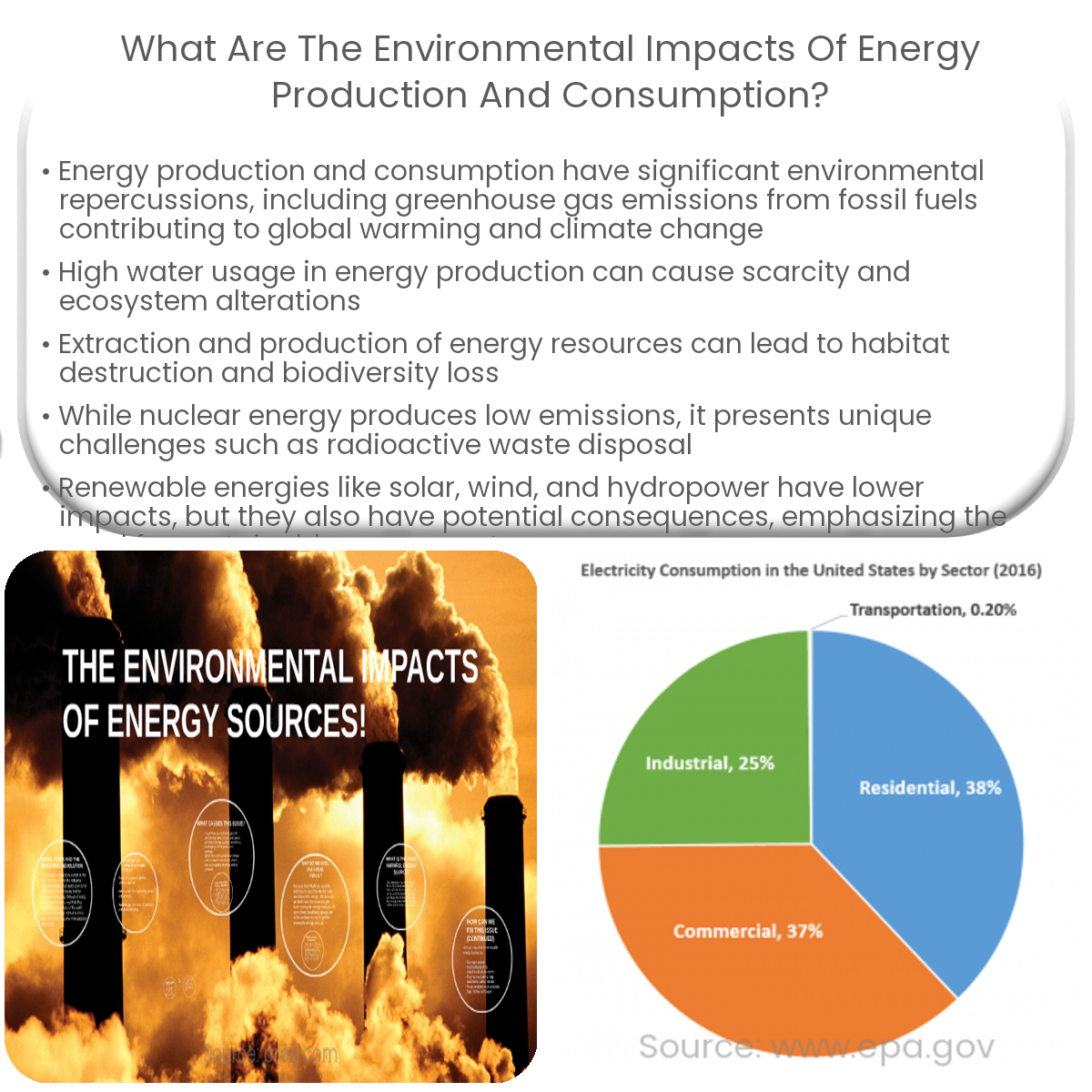Energy production and consumption impact the environment through greenhouse gas emissions, water consumption, habitat destruction, and pollution.
Environmental Impacts of Energy Production and Consumption
Energy production and consumption have significant environmental consequences. These impacts vary depending on the type and scale of energy sources used. This article will discuss some common environmental impacts associated with energy production and consumption.
Fossil Fuel Combustion
Fossil fuels, such as coal, oil, and natural gas, are the primary sources of energy in many countries. Burning these fuels releases greenhouse gases, like carbon dioxide (CO2), methane, and nitrous oxide, which contribute to global warming and climate change. Air pollution from fossil fuel combustion can also cause respiratory problems, heart disease, and premature death.
Water Consumption
Energy production often requires large amounts of water for cooling and other processes. Thermoelectric power plants, for example, are among the largest water users in many countries. This high water consumption can lead to water scarcity, reduced water quality, and altered ecosystems.
Habitat Destruction
The extraction and production of energy resources can have severe impacts on ecosystems and wildlife habitats. Mining for coal, oil, and natural gas can cause deforestation, soil erosion, and the loss of biodiversity. Renewable energy sources, such as solar and wind farms, can also have local environmental impacts if not properly sited and managed.
Nuclear Energy
Although nuclear power plants produce low greenhouse gas emissions, they come with unique environmental challenges. The mining and processing of uranium can contaminate water and soil, and the disposal of radioactive waste remains a significant issue. Additionally, the potential for nuclear accidents poses a threat to the environment and public health.
Renewable Energy
Renewable energy sources, such as solar, wind, and hydropower, generally have lower environmental impacts compared to fossil fuels. However, they are not entirely without consequences. Hydropower can alter river ecosystems and displace local communities, while wind turbines can cause bird and bat mortality if not properly sited.
Conclusion
Energy production and consumption have considerable environmental impacts, ranging from greenhouse gas emissions to habitat destruction. Recognizing these impacts is crucial for developing more sustainable energy systems and reducing our ecological footprint. Transitioning to cleaner, renewable energy sources and improving energy efficiency can help mitigate these environmental consequences.


